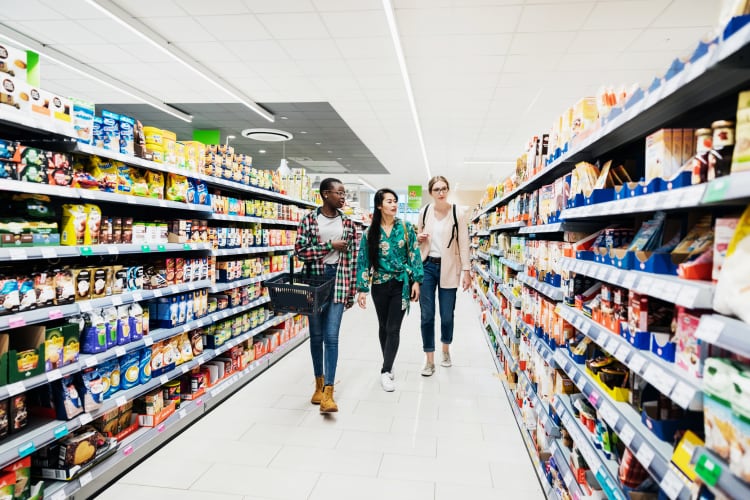We often hear that European consumers want to support food that is produced in a more environmentally friendly fashion. But just how accurate is this perception? How do European attitudes to greener brands stack up against their global peers? And are people in the region more or less likely to change their consumption habits to support the green transition?
New consumer research from insights and analytics agency Nepa set out to chart global attitudes to sustainable food and drink. The research firm spoke to 5,600 consumers from seven markets: the US, UK, Sweden, Germany, Brazil, India and China.
The results demonstrated a ‘wide’ variance, according to Nepa’s UK MD Lindsay Parry. “It is interesting to see what people are willing to trade, or not. The growing concern around the environment and green options are not enough for everyone to plan on drastic changes in their food consumption. However, the variance in markets is wide.”
Attitudes to the uptake of plant-based alternatives to meat and dairy stand as case in point.
The Europe plant-based food and beverage market is projected to grow at a CAGR of 8.87% over the next five years, according to forecasters at Research and Markets. Germany is the largest market for plant-based products in the region, with a growing vegan and vegetarian population and almost 10% of people now identifying as vegetarian.
However, Nepa’s consumer research shows that European and American shoppers are less positive about the outlook for plant-based products than their peers in markets like India, China and Brazil. When asked whether plant-based products will ‘outsell’ animal-based proteins, 68% of Indians said yes in meat and 55% responded affirmatively in dairy. This compares to 37% of UK shoppers who think vegan options can outsell meat and 35% who believe the same for dairy.
Broadening this out to look at net zero ambitions, again the UK could be seen to lag behind other markets in its support for green brands. “This study also shows that 46% of people globally and 37% in the UK feel positive about only buying from brands who are net carbon zero in the future. Once again India is the most open market with 77%,” Parry told FoodNavigator.
A similar pattern emerges when talking to consumers about their attitudes to cellular agriculture, a rapidly developing technology that supports the production of animal proteins without the need to breed, rear and slaughter animals.
Only 25% of people in the UK would like to see lab-grown food available in supermarkets, and 28% feel extremely negative about this possibility. Once again India seems to be the most open country to animal-based alternatives with 45% of people feeling positive about lab-grown products.
Nepa suggests that this shows ‘there are some things not everyone is willing to give up on… And food is one of them’. “People in the UK aren’t willing to make long-term changes when it comes to giving up on things that they enjoy. However, it is a different story for India and Brazil – markets which are open to more radical changes in the food industry.”
Nevertheless, Parry insisted, this doesn’t give brands operating in Europe a pass to not invest in the sustainability of their products. “Being sustainable is a must, brands can’t afford not to consider the differences in needs and wishes around the world.”
Will consumers pay for sustainable food?
Nepa also did a study on willingness to pay and sustainability, interviewing 970 UK consumers on brands across various categories, we were told. It found 65% of people feel its ‘important’ to ‘adapt to a sustainable lifestyle’.
“Brands that are perceived as sustainable will see an average increase of 34% in Willingness to Pay (WTP). This relationship between WTP and a brand’s contribution to a sustainable future is there regardless of industry. Although it does vary, with a 33% for food, and over 40% for luxury and spirits companies,” we were told.
“Two-thirds of consumers believe that companies need to use sustainable energy sources to be credible; and 59% expect brands to engage in the fight against climate change. This focus on the future of the planet was prioritised over socio-economic issues such as health and wellbeing, equal rights and decent working conditions.”




